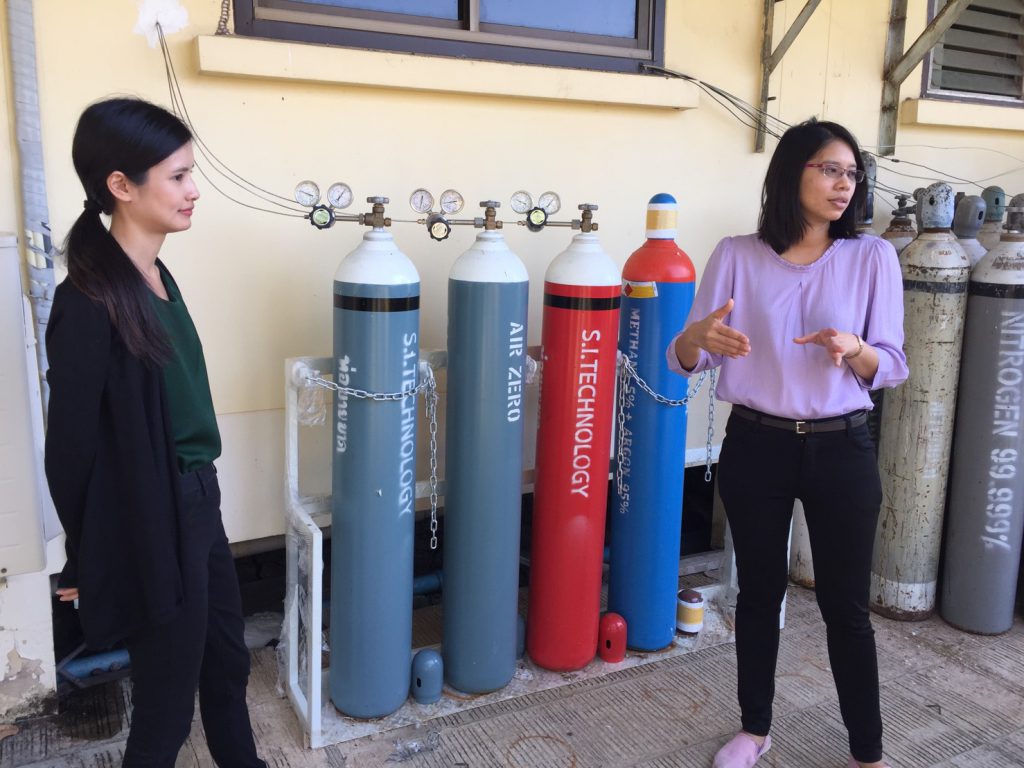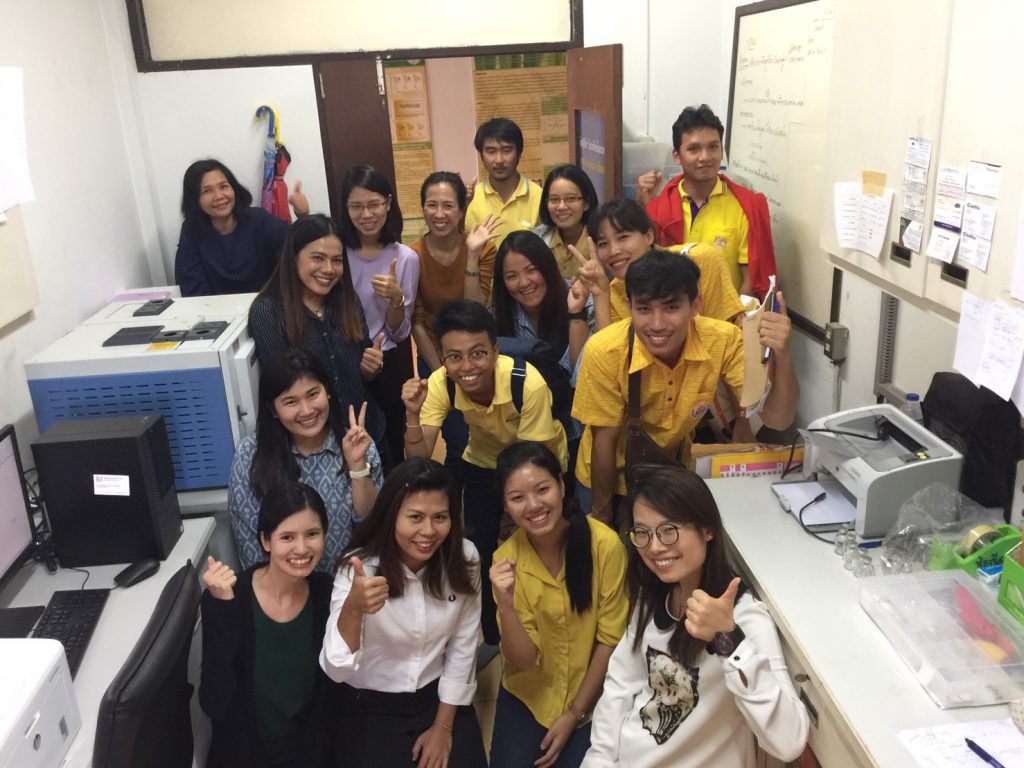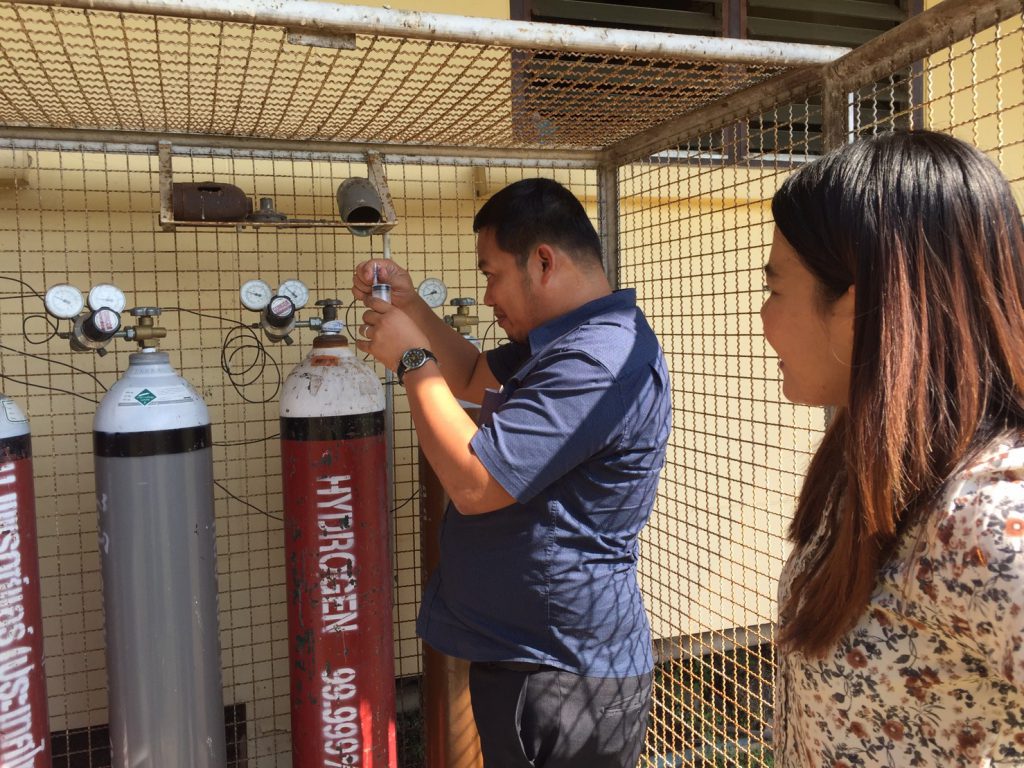
Writer: Patcharin Sae-heng, Project Assistant, Thai-German Climate Programme (TGCP) – Agriculture
Over the past years, the Rice Research Center in Prachin Buri province has been the only rice center in Thailand that possessed a gas chromatograph for analyzing greenhouse gas (GHG) emissions from paddy fields.
But lack of gas chromatograph is no longer a problem.
With support from the Thai-German Climate Programme – Agriculture (TGCP-Agriculture) Project, more gas chromatographs have been installed at Thailand Rice Science Institute in Suphan Buri, Chainat Rice Research Center in the central plains and Ubon Ratchathani Rice Research Center in the northeastern region to enable local researchers detect and quantify the GHG emissions
The gas chromatograph at Prachin Buri Rice Research Center has also been replaced with a new one.

A gas chromatograph is a sensitive instrument that is used for measuring various types of gases that are usually collected in small samples from the field.
After a first training on the gas sampling procedure at the beginning of last year and the setup of gas chromatographs in all the four sites in October 2019, Sci Spec, the company which manages the installation for the Rice Department, trained the local researchers to operate and maintain the machines on 16 December 2019.
The installation will increase Thailand’s capacity in detecting and quantifying GHG emissions generated by rice production. It is intended to capture data on greenhouse gases produced by rice fields in different ecosystems – such as irrigated and rainfed crop areas.

“We are now ready to measure and calculate GHG emission from rice paddy fields,” says Marsuton Sanyapeung, a researcher at the Thailand Rice Science Institute in Suphan Buri, hoping the installation will in the future provide updated and more accurate data for the agriculture sector’s Measurement, Reporting and Verification (MRV) system for national climate reporting.
In order to enhance data management skills, the researchers took part in training sessions on the correct handling of gas chromatographic data that was carried out by technical consultants from the International Rice Research Institute (IRRI) between 11 and 12 December 2019 in three provincial rice research centers.
The local teams will then send the data to the Rice Department’s headquarters, which works closely with the Office of Agricultural Economics (OAE) and the Office of Natural Resources and Environmental Policy and Planning (ONEP), the main agencies responsible for the implementation of climate change policy in the agricultural sector and at the national level, respectively.

TGCP – Agriculture Project supports Thai agencies in developing a national MRV system for the rice sector that meets international standards and implementing the system to counter climate change between 2018 and 2021.
Global warming affects all sectors, especially the agricultural sector, which ensures food security and significantly contributes to the favorable economic conditions of the country. The Thai government is committed to reduce GHG emission through scientific knowledge and technological innovation.